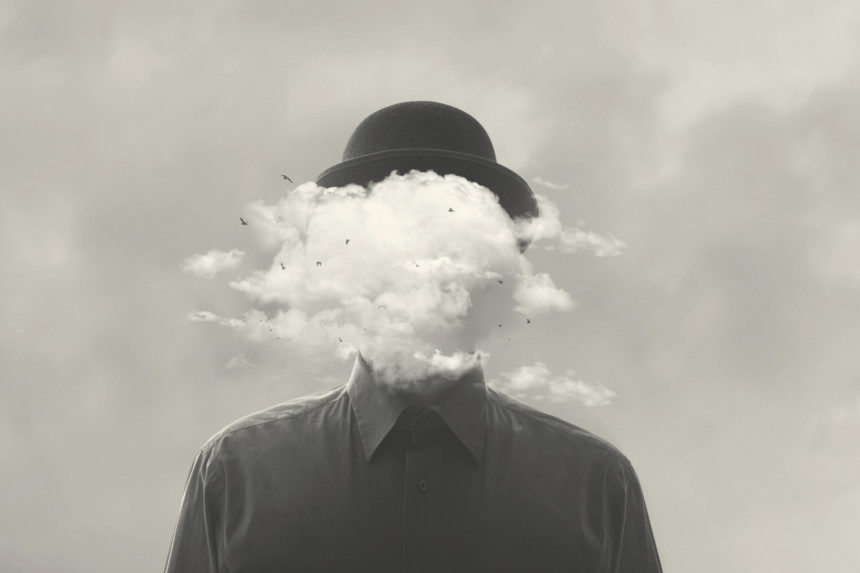There was a long and, for me, agonizing period in American history when everyone seemed to be perfect. The media was awash in articles about celebs, athletes, politicians, and ordinary people who had perfect bodies and brilliant minds and were so honest they could chop down a cherry tree and then confess they had done it. Now I am happy to report that it is trendy to have defects. The same luminaries who polished their media profiles before are suddenly clamoring to confess their addictions, bad behavior, genetic oddities, and deepest, darkest secrets. So, I am thrilled to tell you that I am on the cutting edge because I have harbored two secrets for most of my adult life, and both are bona fide deficiencies.
The first is that I have absolutely no sense of direction. I get lost every time I head for Trader Joe’s, even though it’s just three blocks from my house. I keep saying to myself, “Drive to the corner, turn left, proceed for two streets, then pull into parking lot.” But I can never find the entrance to the parking lot.
When I yell out the window of my car to people on the street to ask directions, they tell me a few left and right turns and then add, reassuringly, “You can’t miss it.” Those four words spell doom to me. Maybe you can’t miss it, but I can, and always do.
“Why don’t you use a GPS?” you may be wondering. For me the initials might as well stand for “Get Poor Service.” Two days ago, I was looking for a trailhead to take a hike in the country. I meticulously entered the info into my phone and trustingly followed the directions of the British Lady. I ended up eyeball-to-eyeball with a black and white spotted Appaloosa horse, because the GPS had led me to a remote stable.
The last time I went to the dentist, whose office is in the vicinity of a hospital, I had to pull over to the side of the road. Trying to stifle my panicked sobbing, I called my husband. “Paul, I can’t find the dentist. I am near the hospital. Tell me how to get there.”
“Are you facing the entrance to the hospital, or on the street to the side?”
“I don’t know. I see two EMTs carrying something lumpy on a stretcher. I think it’s a person.”
“Oh, the emergency room entrance. This is easy. Just drive south …”
“You know I can’t tell south from north. Just tell me a direction. Left? Right?”
“Left …no, wait, it’s right.”
Tears were streaming down my face by the time I arrived at the dentist’s office. “I couldn’t start my car,” I lied. “I’m so sorry I’m late.”
The two women at the reception desk exchanged looks. I had used the same excuse the three previous times.
And now for my second defect, which may be related to my first. Simply put, I don’t know who you are. We may have talked intimately for three hours, but when I see you an hour later, I draw a blank. You look vaguely familiar, but I can’t place you.
The brilliant neurologist and writer Oliver Sacks wrote an article for The New Yorker that linked the two difficulties. He had an inside track on the subject because he suffered from both. Sacks referred to the inability to find places as topographical agnosia. And the second is called prosopagnosia, or face blindness. The condition affects about 2 percent of the population. Sachs had to explain to his patients that even if they’d been coming to him for a long time, he might not recognize them on subsequent visits.
I have tried in vain every technique, method, mnemonic device, meditation, and form of breath work. I’ve done yoga and yogurt and I still confuse Humphrey Bogart with Brad Pitt and Danny Glover with Danny DeVito. I have tried to console myself with the fact that I only have a moderate case of prosopagnosia: Some afflicted folks don’t recognize themselves in a mirror. And I do recognize people I see frequently. In addition, the pandemic allowed me to hide my aberration because no one could recognize anyone behind the masks. At some point, however, I knew the masks would come off, and then, no more excuses.
The pandemic allowed me to hide my aberration because no one could recognize anyone behind the masks.
I have waited this long to tell you that I am a travel journalist. What? You travel the world and can’t find your hairdresser down the street? you are probably thinking.
People assume that travel writers have an impeccable sense of direction and can, like dolphins, bats, and whales, find their way by echolocation. They also believe that because travel writers include people in their stories, they remember every person they have ever met. When I am with colleagues, I act insouciant and pretend I am nosia-free. But trust me when I tell you there’s not enough Xanax in the world to ease the anxiety of attending an industry conference and trying to connect to a bunch of face vacuums that you have met before. The last time I attended such an event, a gaggle of travel writers stood outside a hotel ballroom waiting for the door to open. I was praying the door would stay closed, because once it was ajar, we had to rush in and locate magazine and web editors with whom we were scheduled to meet for ten minutes at a time in a kind of Nightmare-on-Elm-Street, speed-dating version of a pitch meeting.
I had my scheduled appointments in hand, but, of course, I had no idea which faces in that huge ballroom matched the names. I politely asked Crystal, the woman who was in charge of the door, if she could discreetly point out the editors I was supposed to meet.
“But Judie, you know who they are. You’ve met them before, you’ve seen them on panels, you’ve mingled at cocktail hour,” she said. “You’re just feeling a loss of confidence.”
“Crystal, I assure you that I have excellent self-confidence, but I also have face blindness,” I said.
She looked at me quizzically, and I tried to normalize the situation. “Crystal, it’s a brain thing. Do you have any brain oddity?”
She laughed and said no. Then she paused, looked reflective, and added, “Well, I do have one thing. When I go into a department store and I see stacks of T-shirts, sweaters, or jeans, I feel compelled to straighten out the piles. I wait until no one is watching.”
After another beat, she said, “Why don’t you scurry back here to the door after each meeting and I will point out your next one for you.”
I hugged her so hard her cheeks turned crimson.
Over the years I have developed a strategy for finding places. If it weren’t so embarrassing, I would patent it. I write down, on slips of paper, precise directions to stores, museums, friends’ houses, restaurants, and any businesses I frequent. The last time I bought a car, one of my considerations was the size of the pocket on the door next to the driver’s seat, because it’s there I store my wad of sanity-saving scraps of paper.
When it comes to faces, however, I am pretty hopeless. But I do have one miracle solution: my husband Paul. He, too, has a strange brain thing that also affects about 2 percent of the population. Paul is what is known as a Super Recognizer. He remembers every face he has ever seen. He will say things like, “Do you see John Smith over there?”
I look. I see a person wearing a baseball cap and that’s about it. “Who is he?” I whisper.
“He paddled a boat in a film noir that was made in the l940s,” he replies matter-of-factly.
I first suspected there was something unusual about Paul’s memory for faces when we were in a restaurant years ago and he asked our waitperson where she had worked before. She told him the name of another eatery, and Paul smiled and said, “That’s where I remember you from.”
“But I haven’t worked there for 12 years,” she protested.
“You always waited on the tables that were to the left of the door.”
“I can’t believe you remember that!” she exclaimed.
It’s not at all unusual, when we watch a film at home, for Paul to tick off the names of the actors who portray every cop, lifeguard, singer, stockbroker, and drug dealer. Recently we were watching a child actor in a classic movie, and he reeled off a list of the roles the actor would play later in his career.
“How do you know that, Paul?”
“I’ve seen his other movies.”
“How long has it been since you saw cute little Ralph in a film?”
“Years.”
“How many years? Two? Three?”
“Well, more like 30.”
I did some research and discovered that police around the world recruit Super Recognizers like Paul to help with murder investigations and to identify suspects in photographs. They are also employed to point out notoriously disruptive fans before they enter a sports event so local security forces can keep a watchful eye on them.
So, you can see why Paul is my perfect match. As long as he’s by my side, I know who you are. Or, rather, Paul knows, and he tells me. Please forgive me if, when I go out alone, you and I are strangers again.
This article is featured in the July/August issue of The Saturday Evening Post. Subscribe to the magazine for more art, inspiring stories, fiction, humor, and features from our archives.
Featured image: Shutterstock
Become a Saturday Evening Post member and enjoy unlimited access. Subscribe now




Comments
hi, Loretta and Bob. Loretta, I hope this ends your guilt. you are officially a member of the where-am-i-and-who-are-you club! and bob, thanks for your kind words. you make me glad I wrote the article.
Oh Lord! I thought I was the only one who drives past her own driveway at last once a week and has to do a U-turn to come back. I always hope my neighbors aren’t watching. And as for faces? A high school teacher for 33 years, and on the first day I would confuse the 2 blonds wearing pink blouses and never get it right fr the rest of the year. If I run into my next door neighbor in the supermarket and he says hello, I smile and say hello back while wondering who the heck he is. My mom used to say I couldn’t remember people because I didn’t really care about anyone but my of, which left me with a guilt I carry to this day. So thanks fo your article. I’m NOT the only one!
Ms. Fein, I admire you very much for sharing your story. You’re as brave as you are intelligent having figured ways around your disability; not letting it stand in your way, define you, or feeling sorry for yourself.